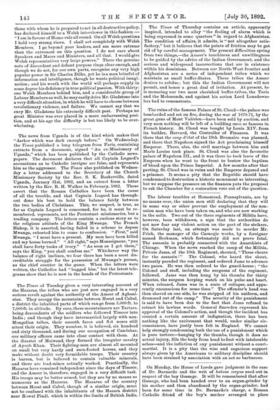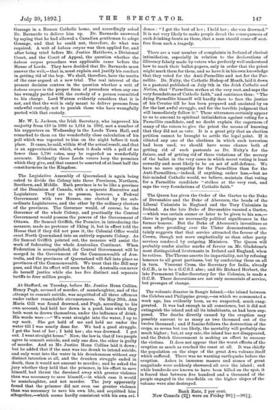On Monday, the House of Lords gave judgment in the
case of Dr. Barnardo and the writ of habeas corpus sued out in respect of the boy Gossage. It will be remembered that after Gossage, who had been handed over to an organ-grinder by his mother and then abandoned by the organ-grinder, had been for some time in Dr. Barnardo's charge, a Roman Catholic friend of the boy's mother arranged to place
Gossage in a Roman Catholic home, and accordingly asked Dr. Barnard° to deliver him up. Dr. Barnardo answered by saying that he had allowed a Canadian gentleman to adopt Gossage, and that he could not, therefore, do what was required. A writ of habeas ccrrpus was then applied for, and after being tried before Mr. Justice Matthews, a Divisional Court, and the Court of Appeal, the question whether the .habeas corpus procedure was applicable came before the House of Lords. They have decided that Dr. Bernardo must answer the writ,—that is, must explain and justify his conduct in getting rid of the boy. We shall, therefore, have the merits of the case argued at a new trial. The real interest of the present decision centres in the question whether a writ of habeas corpus is the proper form of procedure when any one has wrongly parted with the custody of a person committed to his charge. Lord Watson evidently considers that it is not, and that the writ is only meant to deliver persons from 'unlawful custody, not to punish those who have wrongfully parted with that custody.



































 Previous page
Previous page